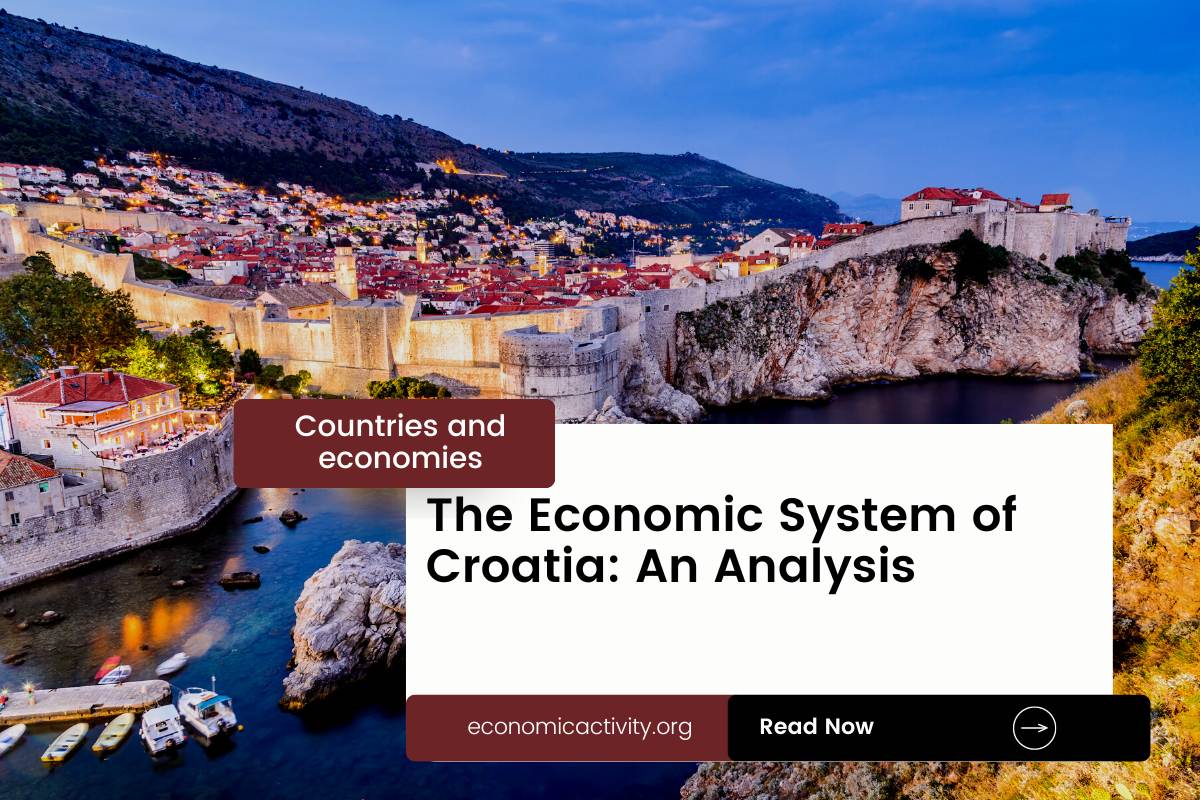What is the economic system of Croatia? The economy of Croatia is based on a mixed economy. The country’s economic system combines elements of a market economy and a planned economy.
In Croatia, the economy comprises a private sector, consisting of individuals and businesses that make autonomous decisions based on self-interest, and a public sector, where the state determines the production and distribution of specific goods and services. No country is purely capitalist or purely communist.
What do the freedom indexes tell about the economic system of Croatia?
Now, to determine if a country is mostly a market economy or a planned economy, it is useful to examine some economic indexes. For instance, according to the 2022 Index of Economic Freedom, which measures the ability of every human to control his own labor and property, Croatia is ranked 45th globally and 27th in Europe indicating that the country has a moderately free economy.
In a similar way, the 2022 Freedom House index evaluates the state of political rights and civil liberties globally. Generally, market economies tend to align more with democracy and freedom, while command economies tend to be characterized by greater state control and fewer democratic and civil liberty protections. Croatia gets a score of 85/100, which qualifies it as free. Croatia is a country where the government does not control what people do for political reasons, and people have the freedom to choose (what, how much, and how to produce, whether to buy or not, selling price, etc.)
The Link Between Public Sector Employment and the Economic System of Croatia
An indicator of the extent to which the State is involved in the economy is the number of public sector employees. In Croatia, according to ILOSTAT, the number of public sector employees as a percentage of the total workforce is 29.8% (2020). In the country’s mixed economy, the number of public sector employees as a percentage of the total workforce varies based on the specific policies and practices adopted by the State. Some economic activities are left to the private sector while others are under government control. The bigger the public sector the closer is the economy to being a command economy.
What does the biggest company in Croatia say about the country’s economic system
The biggest company in Croatia should also be looked at, as well as whether it is a state-owned or private company. In this case, Zagrebacka Banka from Croatia is categorized as a private sector company. It is owned by UniCredit group of Italy. The bank provides financial services to both private and public entities.
The historical factors that have influenced the economic system of Croatia
The current mixed economy system of Croatia in the last century is the result of a combination of factors, including the influence of the former Yugoslavian socialist economy, the transition to a market economy after the dissolution of Yugoslavia, and the adoption of the euro as the official currency. These factors have all contributed to the current economic system of the country, which is characterized by a combination of private and public ownership, free market principles, and government intervention.





Leave a Reply